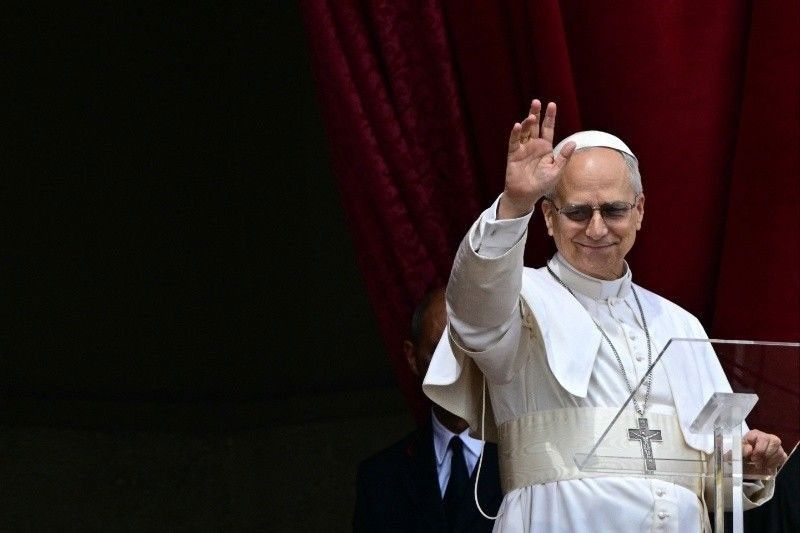
Behind the Headlines: In-depth Analysis of This Week’s Top Stories
In a world where news travels at the speed of light, staying informed is more crucial than ever. Yet, with the deluge of information, it can be challenging to discern what’s important. This week, several stories have captured global attention, prompting deeper analysis. From economic shifts to environmental concerns, let’s delve into the complexities behind the headlines.
Economic Shifts: The Rise of Digital Currencies
The financial landscape is undergoing a significant transformation with the advent of digital currencies. Bitcoin, Ethereum, and a host of other cryptocurrencies have moved from the fringes of financial markets to mainstream consideration. This shift raises questions about the future of traditional banking and the potential for digital currencies to democratize finance.
Central banks globally are responding to the rise of digital currencies. For instance, the European Central Bank is exploring the creation of a digital euro, aiming to provide a stable digital currency that complements cash. Similarly, China’s digital yuan is already in the pilot phase, setting the stage for international competition in this new monetary frontier.
However, the volatility associated with cryptocurrencies poses significant risks. While some investors have seen substantial returns, others have faced dramatic losses. The lack of regulatory oversight further complicates the landscape, necessitating robust debates on how best to integrate digital currencies into the global financial system.
Climate Change: A Global Call to Action

This week, the release of a new report from the Intergovernmental Panel on Climate Change (IPCC) has reignited discussions about environmental sustainability. The report highlights the stark reality of climate change, emphasizing the urgent need for action to mitigate its effects.
According to the IPCC, global temperatures are on track to exceed the critical 1.5°C threshold by 2040 unless significant changes are made. This finding has prompted a renewed push for international cooperation, with leaders calling for more ambitious targets in reducing carbon emissions.
Efforts such as the Paris Agreement have set a framework for global collaboration, yet progress remains uneven. Countries like the United States and China, the world’s largest emitters, play a pivotal role in the success of these initiatives. However, the transition to a sustainable future also requires grassroots movements and individual actions, from reducing energy consumption to supporting green technologies.
Geopolitical Tensions: The Power Dynamics in Asia
Geopolitical tensions in Asia continue to be a focal point in international relations. The South China Sea, a vital trade route, remains a contentious area with competing territorial claims from China, the Philippines, Vietnam, and others. The increasing militarization of the region poses risks not only to regional stability but also to global trade.
Furthermore, the Council on Foreign Relations highlights the ongoing tensions between China and Taiwan, which have significant implications for U.S.-China relations. Taiwan’s strategic importance in global supply chains, particularly in semiconductor manufacturing, adds an economic dimension to the geopolitical landscape.
These tensions underscore the need for diplomatic engagement and conflict resolution mechanisms. International organizations and regional alliances play critical roles in facilitating dialogue and preventing escalation. As nations navigate these complex dynamics, the balance of power in Asia remains a pivotal concern for policymakers worldwide.

Healthcare Innovations: The Role of Technology in Medicine
The healthcare sector is witnessing rapid advancements, driven by the integration of technology. This week, breakthroughs in telemedicine and personalized medicine have spotlighted the potential for technology to revolutionize healthcare delivery.
The COVID-19 pandemic accelerated the adoption of telemedicine, enabling patients to access care remotely. This shift has improved access to healthcare services, particularly in underserved areas. However, it also raises questions about data privacy and the need for secure digital infrastructure.
Moreover, personalized medicine, which tailors treatments based on genetic information, is gaining traction. Initiatives like the Human Genome Project have paved the way for these innovations, offering the promise of more effective and targeted therapies. As research continues, the potential for improving patient outcomes and reducing healthcare costs is significant.
Yet, challenges remain in ensuring equitable access to these technologies. Addressing disparities in healthcare requires concerted efforts from governments, healthcare providers, and technology companies to bridge the digital divide.
Social Movements: A New Era of Activism
Social movements continue to shape the socio-political landscape, with digital platforms playing a crucial role in organizing and amplifying voices. This week, global protests on issues ranging from racial justice to climate activism have highlighted the power of collective action.

The Black Lives Matter movement, which gained momentum following the tragic events in the United States, has sparked international conversations on systemic racism and police reform. Similarly, youth-led climate strikes have drawn attention to the urgency of environmental action, holding leaders accountable for their commitments.
Digital platforms like Twitter and Instagram have become essential tools for activists, enabling rapid mobilization and awareness-raising. However, they also pose challenges, including the spread of misinformation and the potential for online harassment. Navigating these complexities requires digital literacy and robust platform governance.
As social movements evolve, they continue to drive meaningful change, challenging institutions and advocating for a more just and equitable world.
Takeaways
This week’s headlines offer a lens into the complex and interconnected issues shaping our world. From economic transformations to geopolitical tensions, understanding these stories requires a nuanced and informed perspective. As we navigate these challenges, the importance of critical thinking and global collaboration cannot be overstated. By staying engaged and informed, we can contribute to shaping a more sustainable and equitable future.
As we reflect on the stories covered this week, it’s essential to recognize the broader implications they hold for society. The interconnected nature of global issues means that developments in one area often have ripple effects across others. Let’s further explore how these stories converge and the potential pathways forward.
Interconnected Economies: The Global Impact of Economic Shifts
The rise of digital currencies is not just a financial story; it has broad implications for global trade, economic stability, and even international relations. As countries grapple with the integration of cryptocurrencies, there’s a pressing need for international regulatory frameworks. The absence of such frameworks could lead to economic fragmentation, where nations adopt disparate policies that hinder cross-border transactions and innovation.

Moreover, digital currencies could redefine the power dynamics within financial systems. Traditional financial institutions may face challenges adapting to the decentralized nature of cryptocurrencies, potentially leading to a shift in how financial services are accessed and managed. This transition could empower individuals in developing regions, offering them new opportunities for economic participation and growth.
Environmental Policies: The Role of International Cooperation
Climate change is a global challenge that transcends borders, making international cooperation crucial. The IPCC report serves as a clarion call for nations to enhance their environmental policies and take collective action. However, achieving consensus on climate action requires balancing diverse national interests and economic considerations.
Successful international cooperation often hinges on the ability to share technology and resources. Developed nations have a responsibility to support developing countries in their climate mitigation and adaptation efforts. Initiatives like the Paris Agreement highlight the potential for collaborative frameworks that encourage nations to set ambitious targets while providing the necessary support to achieve them.
Geopolitical Strategies: Navigating Complex Power Dynamics
In Asia, geopolitical strategies are evolving as nations seek to assert their influence and protect their interests. The South China Sea disputes and the Taiwan issue exemplify the complexities of regional power dynamics. These tensions can have far-reaching consequences, affecting global supply chains, security alliances, and international diplomacy.
Addressing these challenges requires a multifaceted approach that includes diplomatic engagement, economic cooperation, and military deterrence. Regional organizations such as ASEAN play a pivotal role in facilitating dialogue and promoting peace. Their efforts, alongside those of global powers, are crucial in preventing conflicts and ensuring stability in the region.

Healthcare Access: Bridging Technological and Societal Gaps
The integration of technology in healthcare promises significant advancements, but it also highlights existing disparities in access to medical services. To harness the full potential of telemedicine and personalized medicine, it’s essential to address the infrastructural and societal barriers that limit access for underserved populations.
Governments and healthcare providers must collaborate to develop policies that promote equitable access to healthcare innovations. This includes investing in digital infrastructure, providing education and training for healthcare professionals, and ensuring that data privacy regulations protect patient information without stifling technological advancement.
Social Activism: The Future of Collective Action
Social movements have demonstrated the power of collective action in effecting change. As these movements continue to evolve, they must navigate the challenges of digital activism, including misinformation and platform censorship. Ensuring the integrity of online spaces where activism thrives is critical for sustaining momentum and achieving tangible outcomes.
Looking ahead, the future of social activism may involve greater collaboration between grassroots movements and institutional entities. Partnerships with non-governmental organizations, policymakers, and businesses can amplify the impact of social movements, driving systemic change across various sectors.
In conclusion, the top stories of this week underscore the complexity and interconnectedness of contemporary global issues. By analyzing these developments through a holistic lens, we gain valuable insights into the challenges and opportunities that lie ahead. As individuals and communities, staying informed and engaged is vital for contributing to meaningful solutions and fostering a more interconnected and resilient world.







